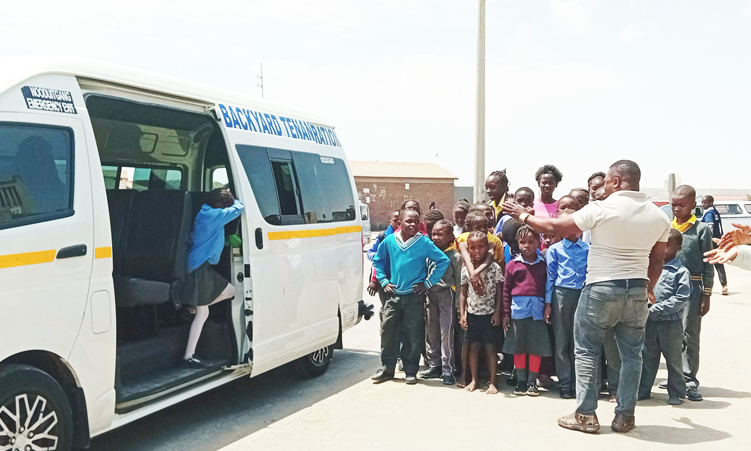A new apprenticeship collaboration between Namibia and Germany is set to help mitigate Namibia’s high unemployment rate, while solving the shortage of apprentices in Germany.
This was said by Dennis Schroeder, the director of Goethe-Institut, during the launch of the Geran Apprenticeship Connect Programme 2023 in Windhoek yesterday.
“Namibia is currently facing a very high unemployment rate, especially among the youth, and in Germany there has been a shortage of apprenticeships, compounded by the rapid retirement of the baby-boomer generation, leaving a gap in our skilled workforce, with about 350 000 workers retiring each year,” he said.
“This issue is not just a statistic. It represents the unrealised dreams and talents of a generation,” he said.
Schroeder said the partnership between the Goethe-Institut and the Namibia Investment Promotion and Development Board was at the forefront of introducing a new chapter for the two nations.
“We are not just facilitating a cultural exchange, we are actively opening doors for vocational training opportunities in Germany for the youth of Namibia,” he said.
Schroeder said a central part of the institute’s mission is an innovative online platform linking Namibian young people with companies and vocational training opportunities in Germany.
“It’s a bridge of hope and possibilities. But it’s not just about acquiring technical skills. At the Goethe-Institut, we ensure that these young individuals are also culturally equipped for their journey in Germany.
“Our language programmes are designed to prepare them for both professional success and personal enrichment. This initiative is a perfect example of what I like to call ‘knowledge circulation’.
“We aim to create a cycle of learning and returning – where many Namibian youths can gain invaluable skills in Germany, and then bring this expertise back home, enriching Namibia with new insights and capabilities,” he said.
Schroeder said Germany faces a significant shortage of apprentices.
He said a recent survey found that 42% of German companies were unable to fill all their apprenticeship positions.
The German Economic Institute reported a 10% drop in new apprenticeship contracts in the past 10 years.
“That is why this partnership scheme presents a unique opportunity for synergy.
By training Namibian youth, we not only address the unemployment issue here, but also help fill the growing gap in Germany’s skilled workforce,” he said.
Each professional who returns would not only serve as a bridge between the two cultures, Schroeder said, but would also be a vital economic asset for Namibia.
“This initiative goes beyond addressing unemployment.
It stands as a testament to our shared commitment to the future – a future where the dreams and aspirations of our youth are not only acknowledged, but actively supported and realised through international cooperation,” he said.
– email: matthew@namibian.com.na
Stay informed with The Namibian – your source for credible journalism. Get in-depth reporting and opinions for
only N$85 a month. Invest in journalism, invest in democracy –
Subscribe Now!










